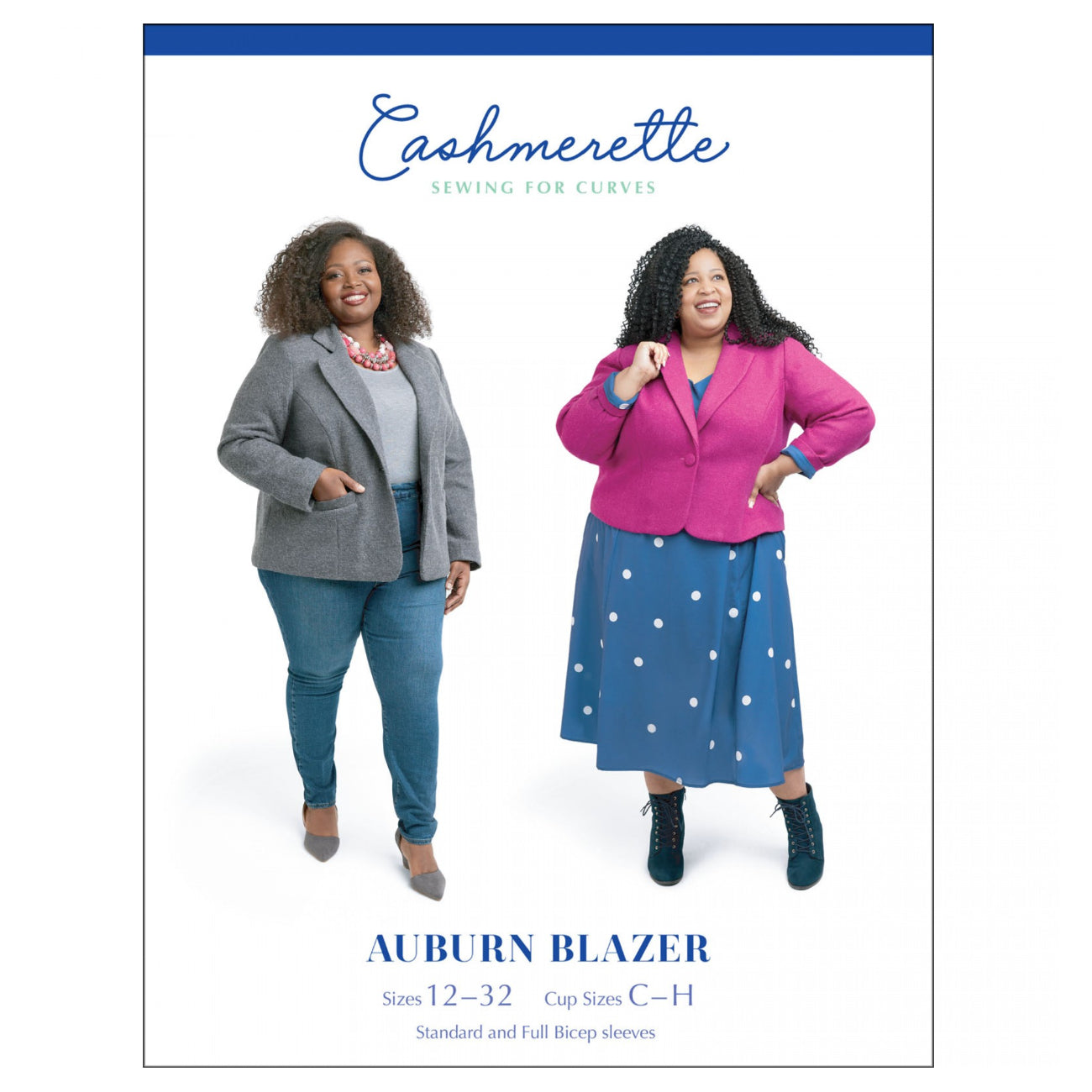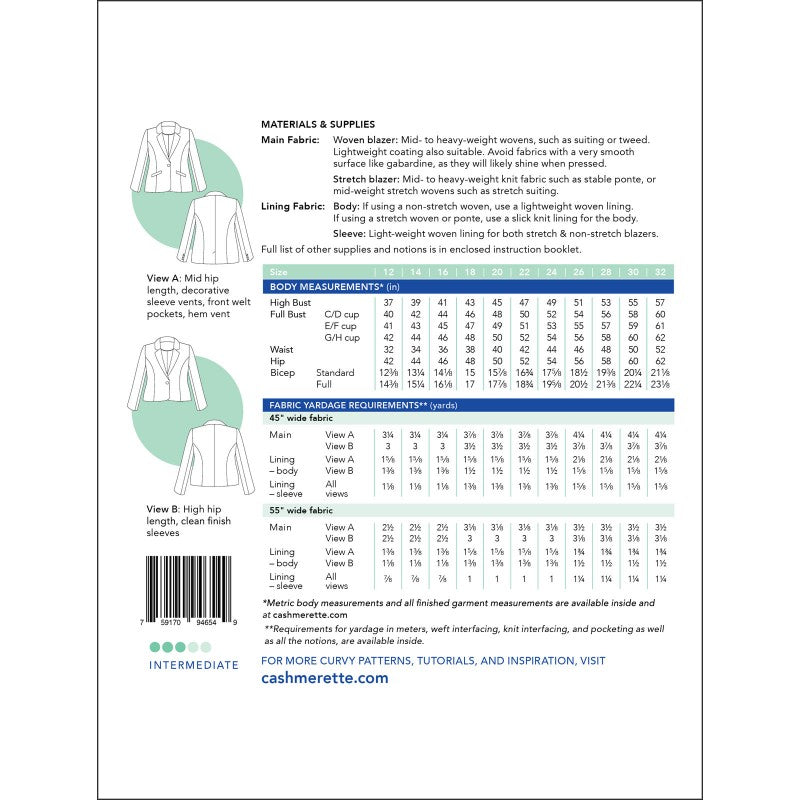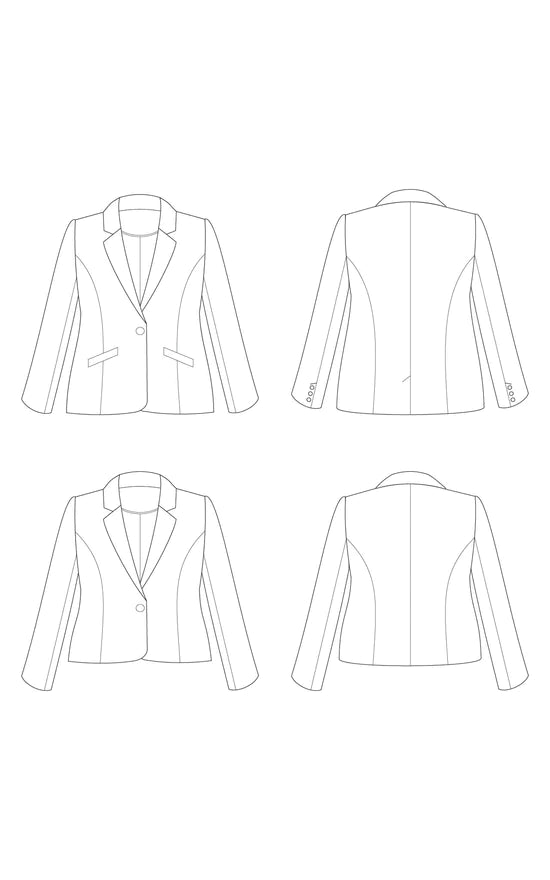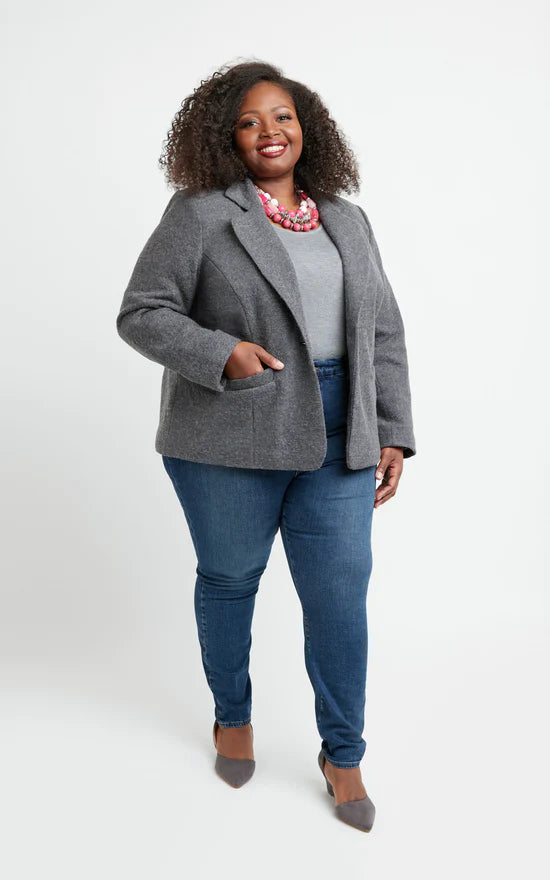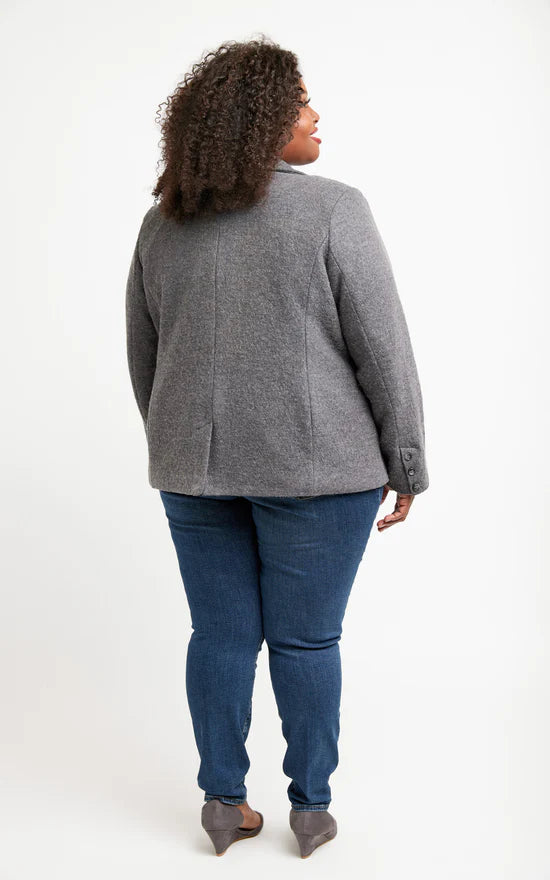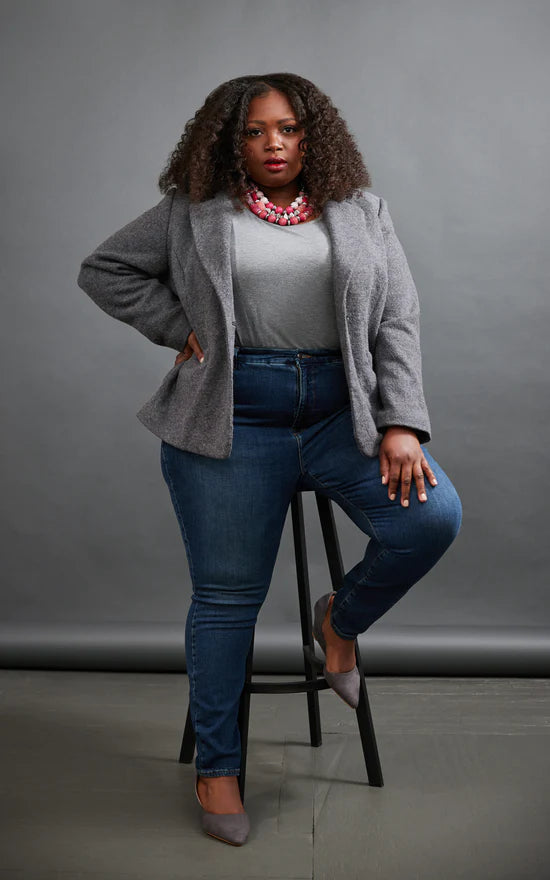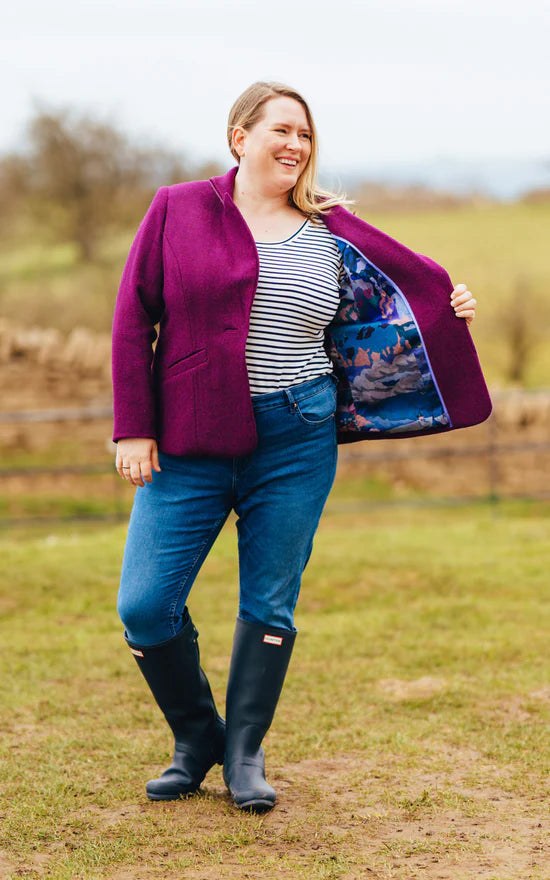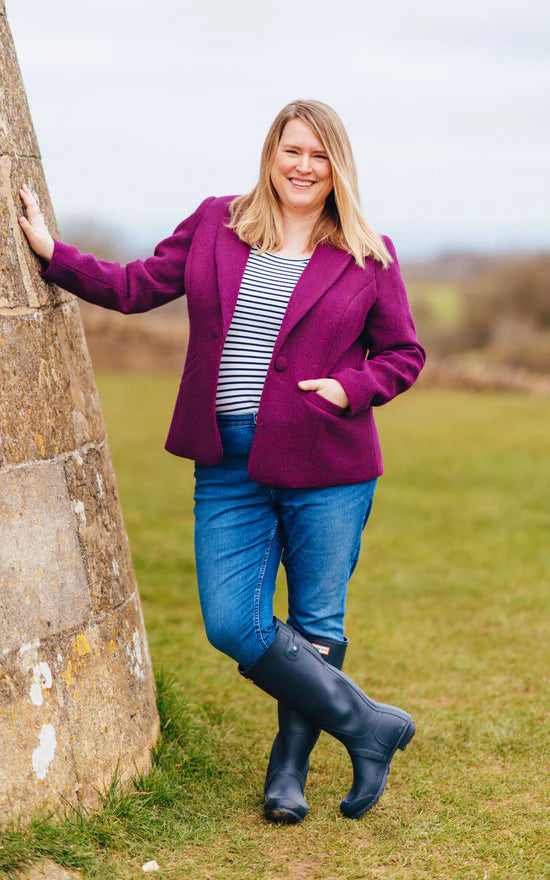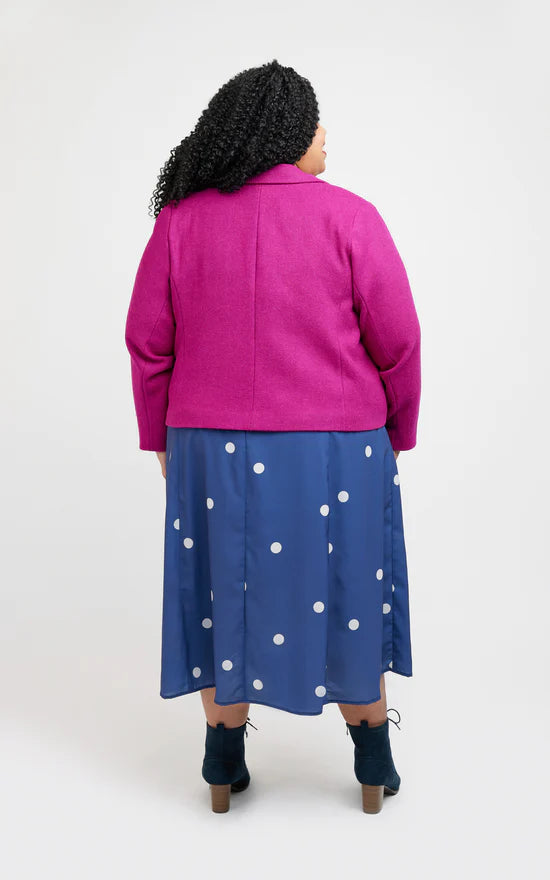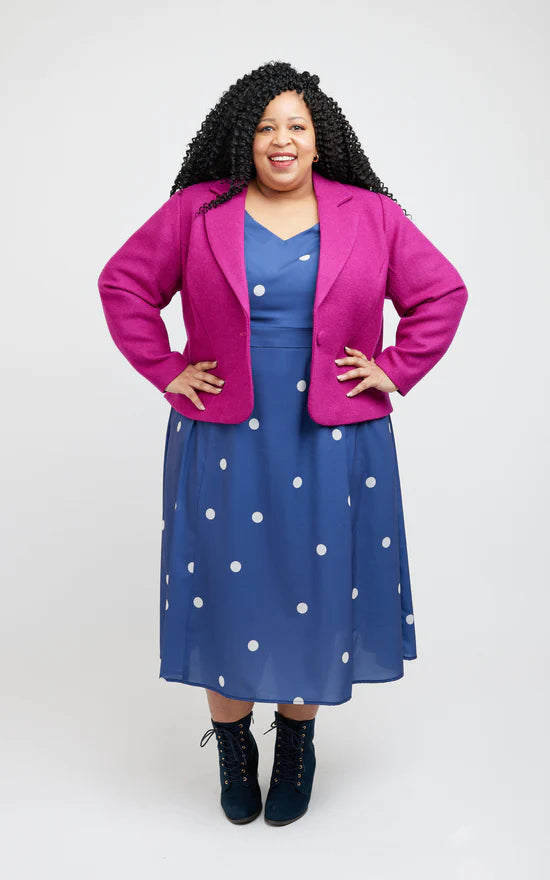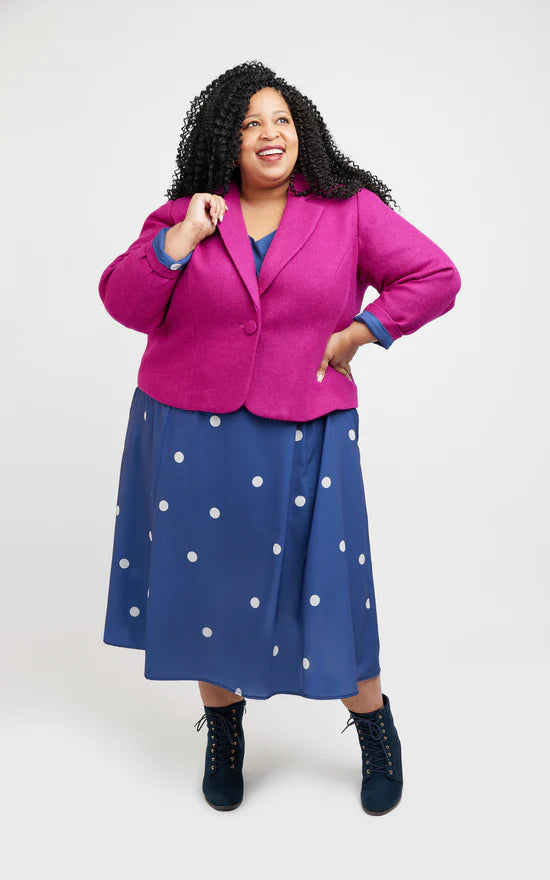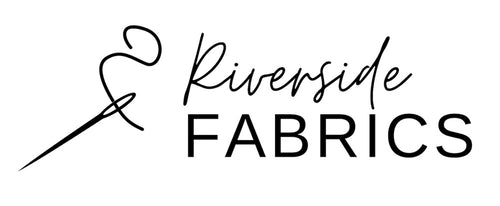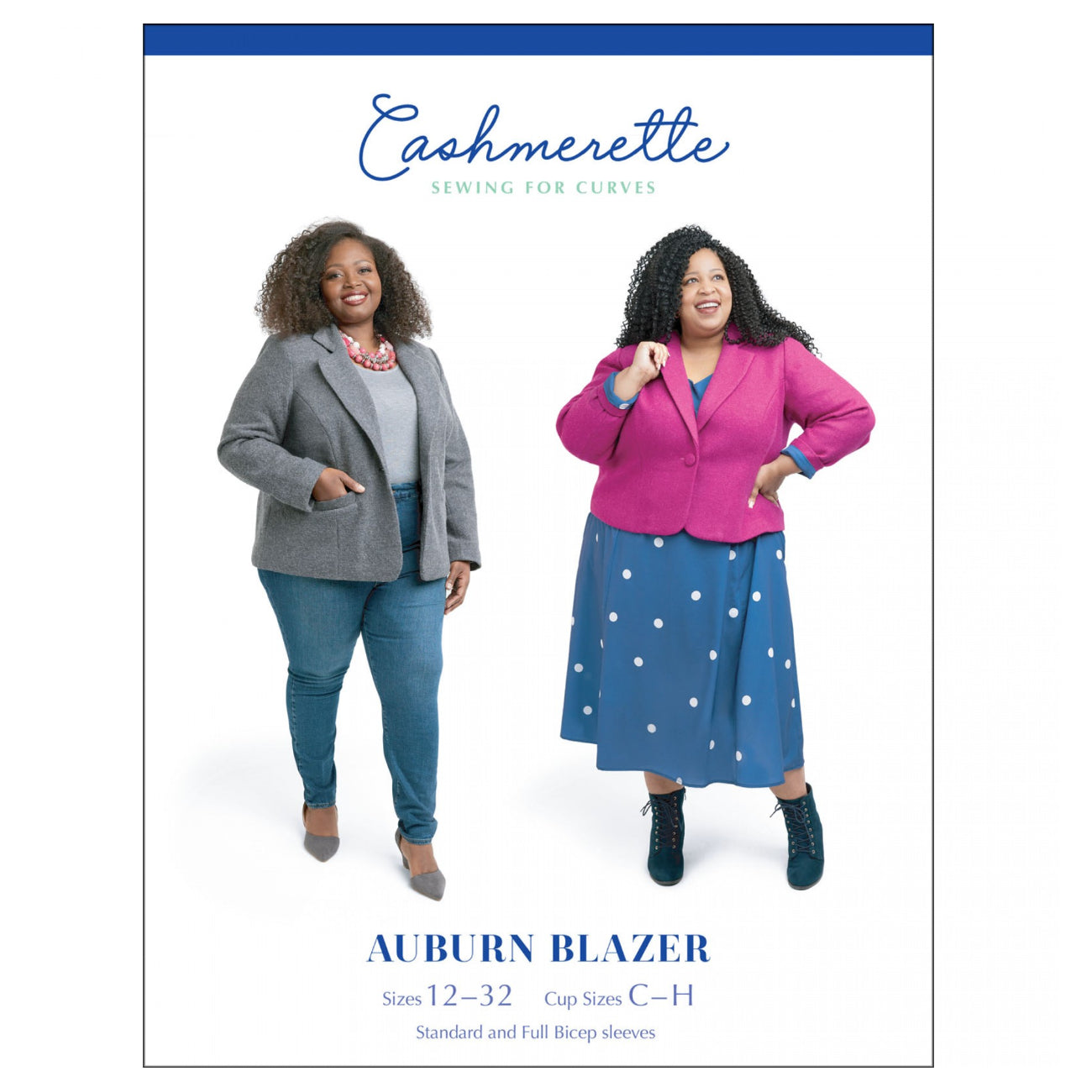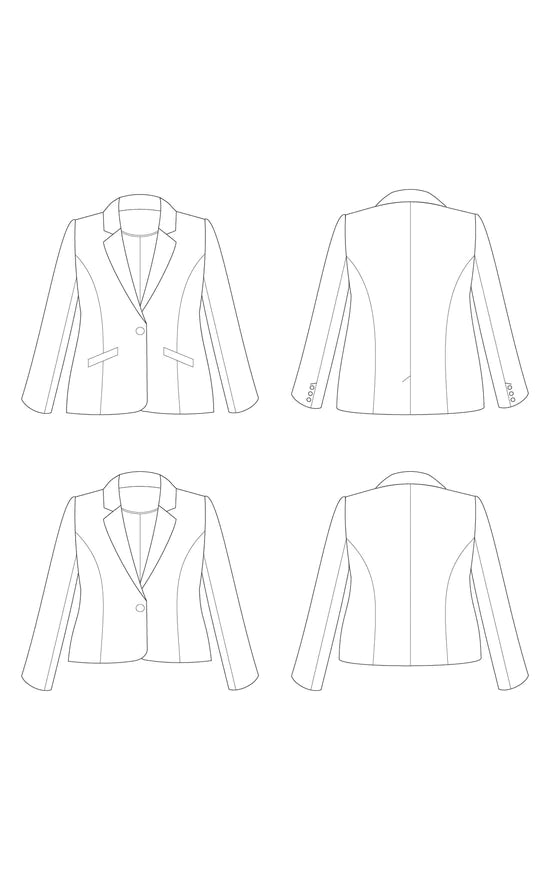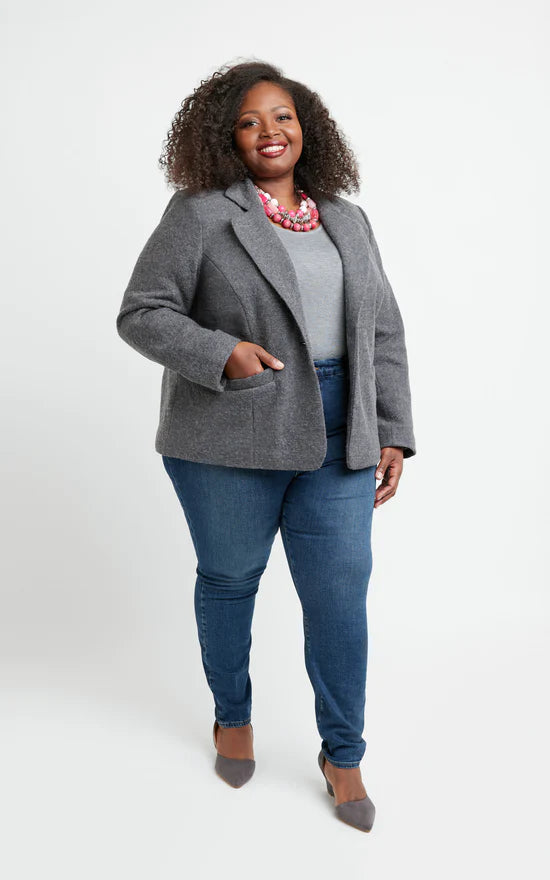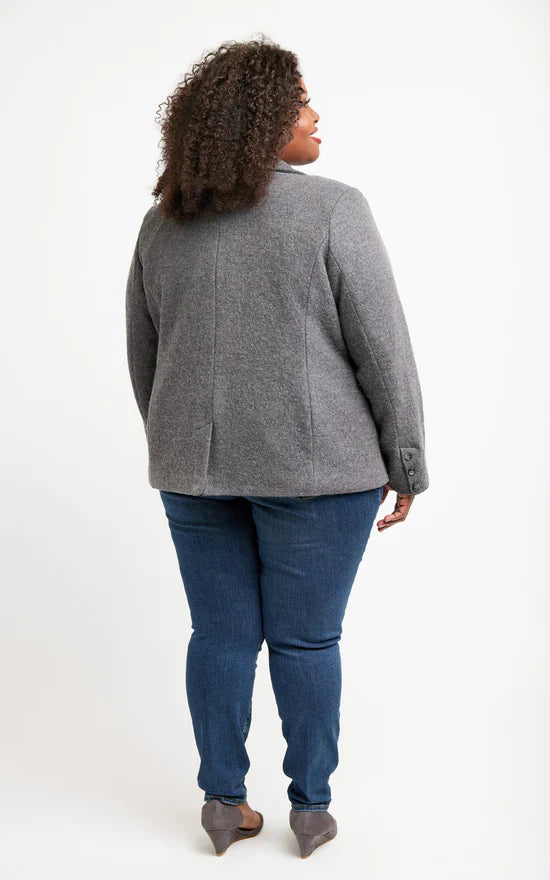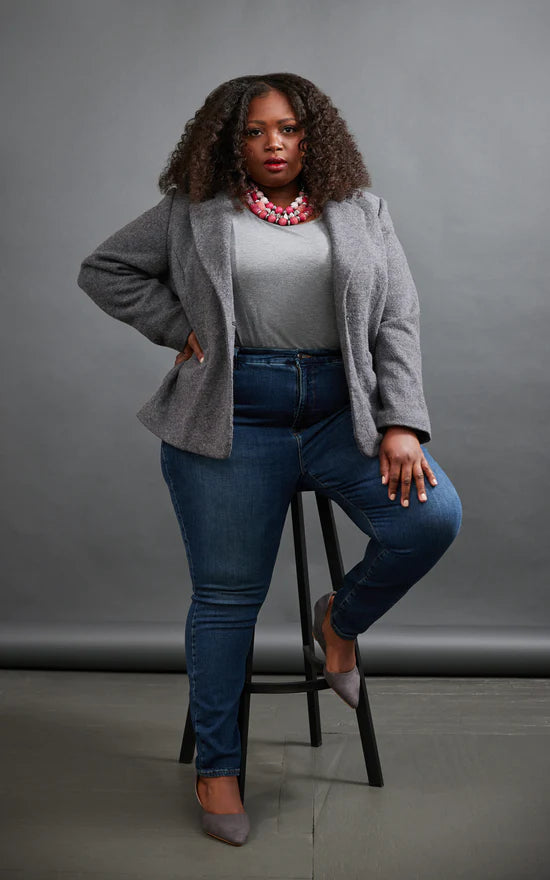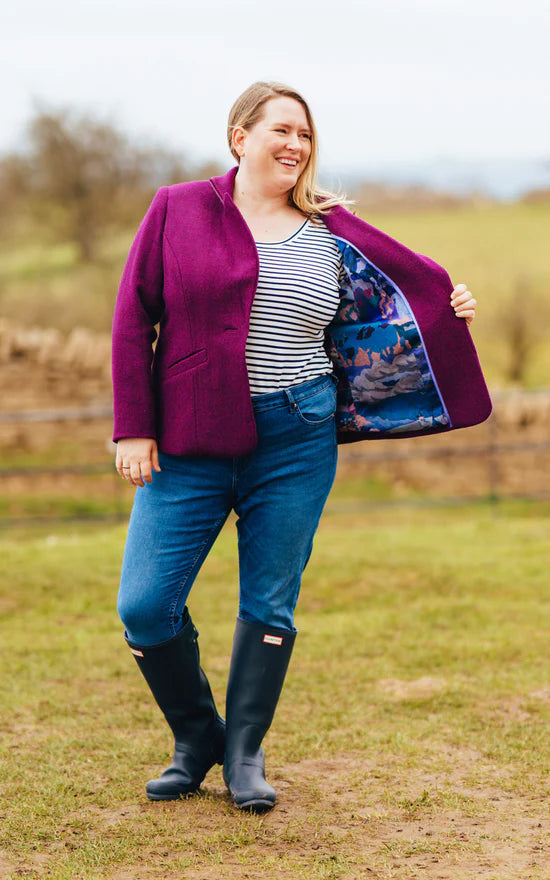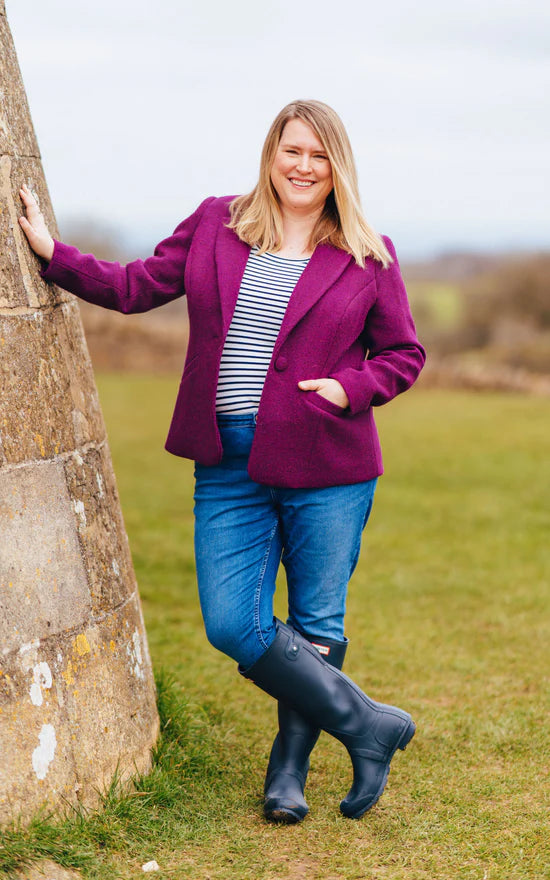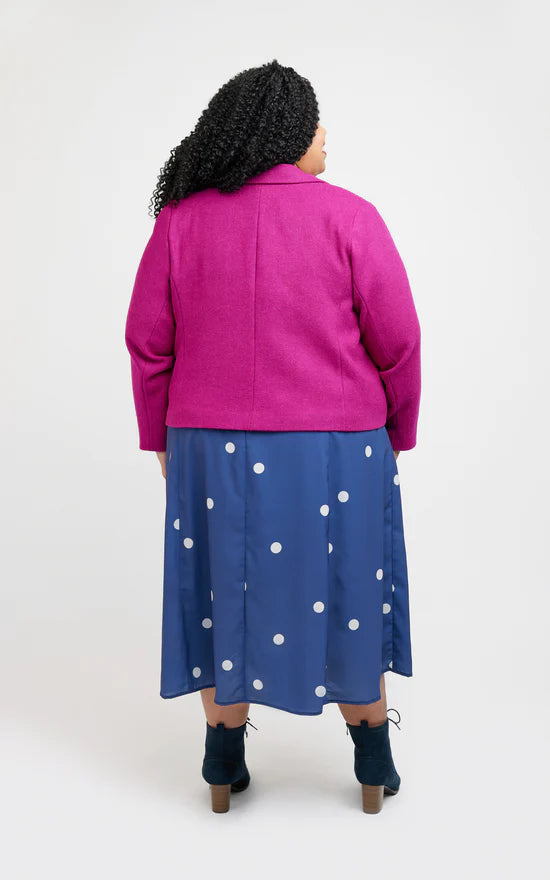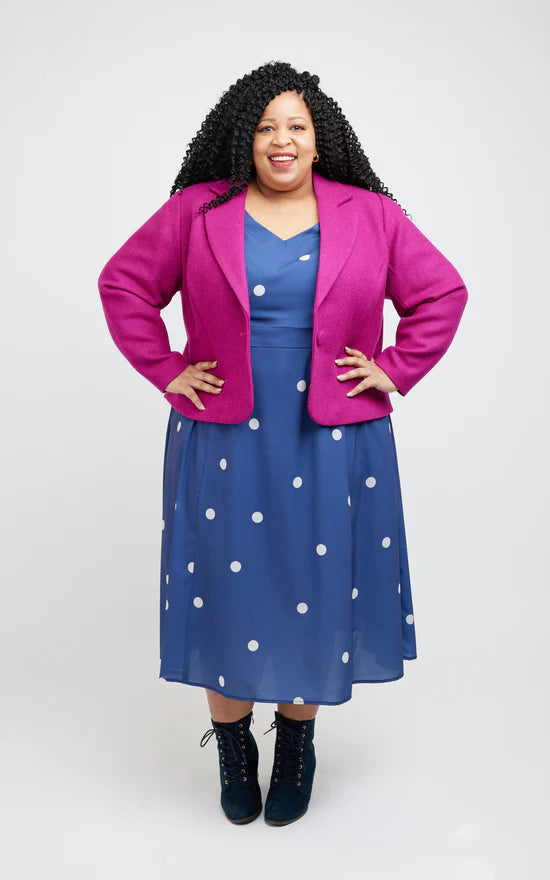Finally, a blazer that fits curves! Experience the joy of a classic lined blazer designed specifically for a full bust. Say goodbye to blazers that don’t button up, or are hugely oversized at the shoulders—with our C-H cup sizes and thoughtful design, we have the perfect blazer for curves.
The Cashmerette Auburn Blazer features sleek princess seams, a sophisticated notched collar, and a single button closure. Complete the look with angled welt pockets and two-piece vented sleeves, or go for a cropped length and a clean sleeve finish. Whether sewn in a woven, stretch woven, or stable knit, the Auburn is sure to add polish to your wardrobe and style.
This Cashmerette pattern includes:
- Cup sizes from C to H
- A “full bicep” sleeve option
- A sizing calculator which will tell you exactly which size to make
- A beautifully illustrated and detailed instruction booklet, to guide you no matter your sewing level
- A full photo sewalong on our blog with tips and techniques that go beyond the instruction booklet
SEWING LEVEL
Intermediate
SIZING
12 to 32, in three cup sizes (C/D, E/F, G/H)—includes 40-62” bust and 42–62” hip. Find your size in seconds using our size calculator.
RECOMMENDED FABRIC
Main fabric for woven blazer: Mid- to heavy-weight wovens, such as suiting or tweed, made from wool, linen, or wool blends. Lightweight coating also suitable. Avoid fabrics with a very smooth surface like gabardine, as they will likely shine when pressed.
Main fabric for stretch blazer: Mid- to heavy-weight knit fabric such as stable ponte, or mid-weight stretch wovens such as stretch suiting.
Body lining: If using a non-stretch woven, use a light- weight woven lining such as rayon bemberg or crepe de chine. If using a stretch woven or ponte, use a knit lining for the body, such as ITY or other slick jersey.
Sleeve lining: Light-weight woven lining such as rayon bemberg or or crepe de chine, for both stretch & non-stretch blazers.
Pocket lining: Stable woven such as quilting cotton or shirting.
Interfacing: Mid-weight weft fusible interfacing and mid- weight knit fusible interfacing. Optional: use heavier weight interfacing for pocket welt; fusible horsehair canvas can be used for chest shield interfacing.
NOTIONS
Universal (for non-stretch) or stretch needle, hand sewing needle, thread
View A: 2 ⅜ yd (2.2 m) of 1 – 1 ½” (2.5 – 3.8 cm) wide bias tape (homemade) or ⅝” – ¾” (1.5 – 1.9 cm) wide single fold bias tape (store bought)
View B: ½ yd (0.5 m) of 1 – 1 ½” (2.5 – 3.8 cm) wide bias tape (homemade) or ⅝” – ¾” (1.5 – 1.9 cm) wide single fold bias tape (store bought)
One 1 – 1 1⁄4” button (center front), six ½” – ⅝” buttons (sleeve vents) for View A only.
Shoulder pads (⅜”/1 cm – ½”/12 mm thick). Rounded jacket/blazer shoulder pads are best and are typically around 6.5” (16.5 cm) by 4” (10.2 cm).
Straight grain fusible stabilizing tape (Alternatively, if your interfacing has a direction with NO stretch, even mechanical, you can cut a ½” strip along the direction with no stretch.)
